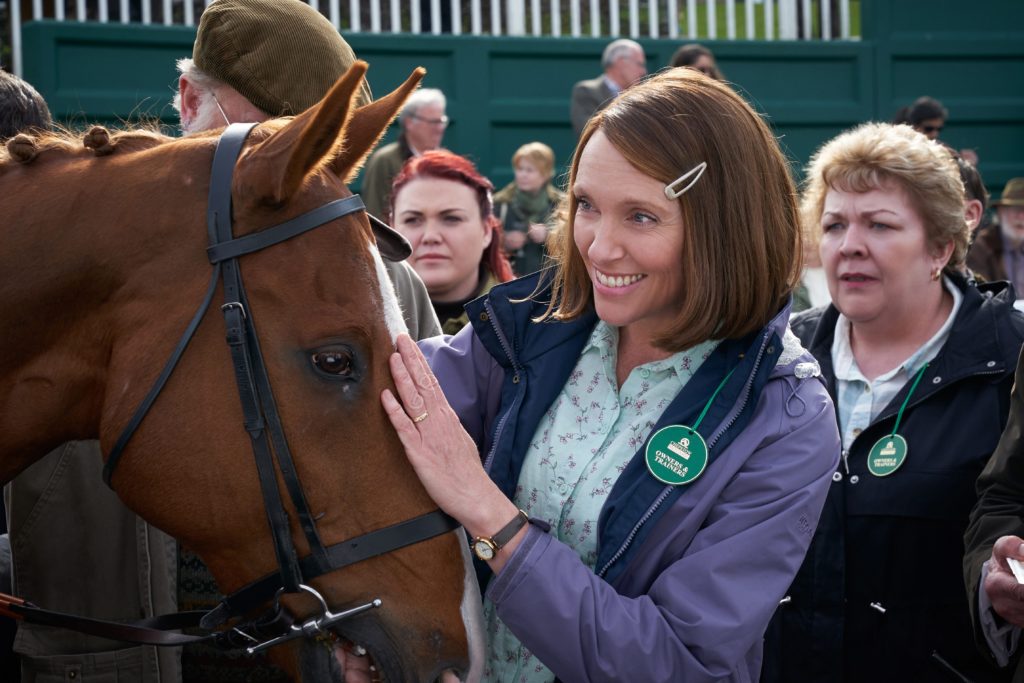Dream Horse

Toni Collette stars in DREAM HORSE. (Photo: Bleecker Street Media)
Horse racing might be known as the sport of kings, but in Dream Horse, it’s also the sport of bartenders, store clerks, and fledgling accountants.
The sort of breezy crowd-pleaser the Brits used to churn out regularly in the 1990s, this true-life charmer is bolstered by an endearing collection of small-town misfits and eccentrics, both on two and four legs.
It’s based on the true story behind Dream Alliance, a thoroughbred owned by a syndicate of neighbors in a blue-collar Welsh village, that previously was the subject of a 2015 documentary.
This fictionalized saga focuses on Jan (Toni Collette), an animal lover who works two jobs while her arthritic husband (Owen Teale) is complacent at home.
Her scheme to buy a broodmare comes from tax adviser Howard (Damian Lewis), and it blossoms into an idea to share the ownership responsibilities — and winnings — for a foal, which garners support from a handful of locals.
Howard cautions the novices that recouping their money is a long shot. “There’s a less than 1 percent chance this horse will ever win a race,” he explains. But then there wouldn’t be a movie, would there?
Eventually, Jan aligns the temperamental colt with a respected trainer (Nicholas Farrell), whose initial reluctance turns to optimism after seeing Dream Alliance run. As the team experiences some success in steeplechase races at progressively higher levels, they also learn how one misstep can cause them to lose everything.
Striking an optimistic tone for a somewhat beleaguered sport, Dream Horse invites moviegoers to set aside cynical attitudes about the ethics of horse racing or the gambling industry, as well as overlook scrutiny of the narrative embellishments and logical gaps.
Welsh director Euros Lyn punctuates the racing sequences with some visceral thrills, although unlike big-screen biopics of Seabiscuit and Secretariat, for example, this one more closely follows the action off the track.
The enthusiasm of the ragtag ownership group is infectious, while Collette provides an emotional anchor with her plucky portrayal. The formulaic screenplay focuses more on the reward rather than the risk inherent in their investment while glossing over some of the harsh economic realities.
Still, both the horse and the movie, as they navigate some ups and downs together, are easy to root for. Like its equine title character, the film’s feisty underdog spirit makes it a winner.
Rated PG, 113 minutes.